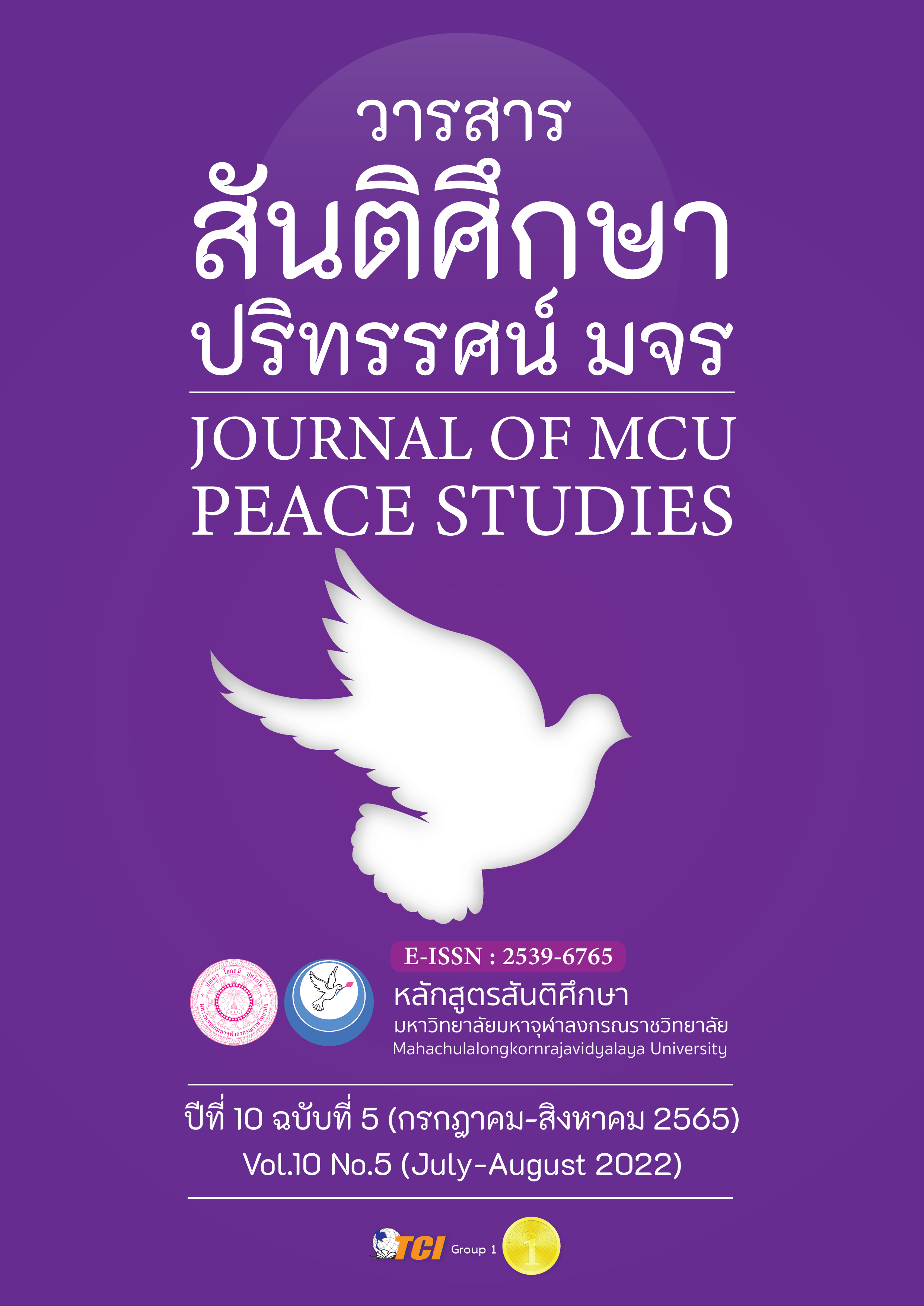Development of Learning Activities in Flipped Classroom to Enhance English Speaking Skill of Undergraduate Students in Elementary Major
Main Article Content
บทคัดย่อ
The objectives of this research were 1) to develop learning activities in flipped classroom to enhance English speaking skill of university students in elementary major as a required effective criterion at 80/80, 2) to study the ability levels of English speaking skill from the university students through learning activities in flipped classroom 3) to compare the ability levels of English speaking skill of the university students before and after implementing flipped classroom. The sampling of this research was selected by the purposive sample group and the sampling was 33 undergraduate students in Elementary Major in the Faculty of Education, Phranakhon Si Ayutthaya Rajabhat University. All of them enrolled in English for Elementary school teacher course. This research was an experimental research and the research materials were flipped classroom learning activities’ lesson plans, speaking skills’ observation forms, and tests. The data were analyzed by Percentages, Means, Standard Deviation (S.D.), Effective (E1/E2) and T-Test.
The research results were found as follows;
- The effective of criterion learning activities in flipped classroom to enhance English speaking skill of the university students in Elementary majors were 80.85/81.72.
- The ability of the students in speaking skills was at high level.
3. The ability of English speaking skill after using the flipped classroom learning activities was higher than before using this method with statistically significant difference at .05 level.
Article Details

อนุญาตภายใต้เงื่อนไข Creative Commons Attribution-NonCommercial-NoDerivatives 4.0 International License.
ทัศนะและความคิดเห็นที่ปรากฏในบทความในวารสาร ถือเป็นความรับผิดชอบของผู้เขียนบทความนั้น และไม่ถือเป็นทัศนะและความรับผิดชอบของกองบรรณาธิการ ยินยอมว่าบทความเป็นลิขสิทธิ์ของวารสาร
เอกสารอ้างอิง
Aiello, J. (2018). Negotiating Englishes and English-Speaking Identities A Study of Youth Learning English in Italy. New York: Routledge.
Bailey, K. M., & Savage, L. (1994). New Ways in Teaching Speaking. Illinois: Pantagraph
Printing.
Bergmann, J., & Sams, A. (2012). Flip Your Classroom Reach Every Student in Every Class Every Day. USA: International Society for Technology in Education.
Burns, A., & Siegel, J. (2018). International Perspectives on Teaching the Four Skills in ELT Listening, Speaking, Reading, Writing. United Kingdom: Springer.
Chen, Y. et al. (2014). Is FLIP enough? Or should we use the FLIPPED model instead? Computers & Education, 79, 16-27.
Chobthamdee, B., & Langprayoon, P. (2020). Effect of Flipped Classroom with Digital Video on Learning Achievement of English Teaching Program Students. IMELT 7 International Mobile Education & Learning Technologies Conference. 22-23 February 2020, Singapore.
Finn, J.D., & Zimmer, K. (2012). Student engagement: what is it? Why does it matter? Handbook of research on student engagement. New York: Springer.
Green, S. C., Banas, R. J., & Perkins, A. R. (2017). The Flipped College Classroom Conceptualized and Re-Conceptualized. Switzerland: Springer.
Johnson et al. (2014). NMC Horizon Report: 2014 Higher Education Edition. USA: New Media Consortium.
Kurt, G. (2017). Implementing the Flipped Classroom in Teacher Education: Evidence from Turkey. Educational Technology & Society, 20(1), 211–221.
Langprayoon, P., & Chobthamdee, B. (2020). Effect of Blended Learning with Collaborative Learning via Social Networking on Video Sharing to Enhance English Speaking Ability of Students in the Faculty of Education. IMELT 7 International Mobile Education & Learning Technologies Conference, 22-23 February 2020, Singapore.
Makphon, S. (2016). Learning Achievement Development of Technical Drawing Subject by Flipped Classroom Approach. CSNP-JOURNAL, 1(1), 31-36.
Muzyka, L. J., & Luker, S.L. (2016). The Flipped Classroom Volume 1: Background and Challenges. USA: Oxford University Press.
Muzyka, L. J., & Luker, S.L. (2016). The Flipped Classroom Volume 2: Results from Practice. USA: Oxford University Press.
Nicol, D., & Macfarlane, D. (2006). Formative Assessment and Self-Regulated Learning: A Model and Seven Principles of Good Feedback Practice. Studies in Higher Education, 31(2), 199–218.
Reidsema, C. et al. (2017). The Flipped Classroom Practice and Practices in Higher Education. Singapore: Springer.
Saenboonsong, S. (2017). The Development of Flipped Classroom Model using Cloud Technology Approach on Academic Achievement in Computer Science for Teacher Course for Undergraduate Students. Journal of Graduate Studies Valaya Alongkorn Rajabhat University, 11, 133-146.
Saenboonsong, S., & Poonsawad, A. (2020). A Digital Storytelling on Video to Improve English Speaking Skills of Thai EFL Undergraduate Students. IMELT 7 International Mobile Education & Learning Technologies Conference, 22-23 February 2020, Singapore.
Suwanno, P., & Lumbensa, P. (2019). Effects of a Flipped-Classroom Model with Research-Based Learning of the Fourth Year Students at Yala Rajabhat University. Journal of Yala Rajabhat University, 14(1), 1-10.
Thinhanwong, S. (2018). Development of English Picture Storybooks to Promote the Reading Ability of Prathom Suksa 6 Students in Phetchaburi Province. The 5th Rajabhat University National & International Research and Academic Conference (RUNIRAC V). 2–5 December 2018, Phetchaburi, Thailand.
Wolff, C. L., & Chan, J. (2016). Flipped Classrooms for Legal Education. Singapore: Springer.


